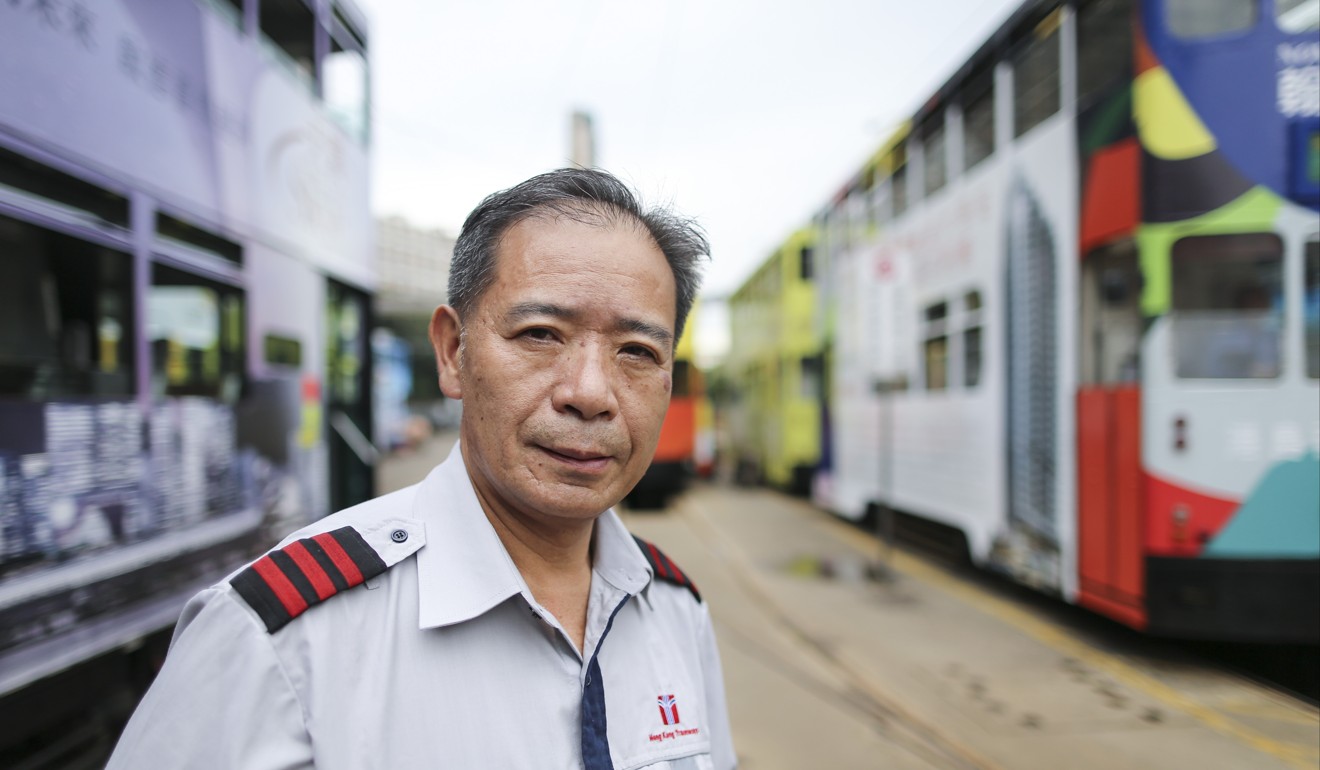
Handover politics? I was more worried about the rain, Hong Kong tram driver recalls
Leung Hok-pang has had a ringside seat at events in the city as the meaning of the July 1 date has changed since 1997
When Hong Kong changed from a British colony to a Chinese special administrative region 20 years ago, those living in the city witnessed the significant moment from different locations, on different jobs and with different feelings. All the little things they experienced, from a hug with Chinese officials to a change in police badges, will be remembered as parts of the city’s history.
The torrential rain that fell for much of June 30, 1997, was seen in equal parts as a “washing away of the century-long humiliation due to colonialism” – a description in a Chinese state newspaper – and as proof “the sky was crying”, a view taken by locals sceptical of a return to a country ruled by the Communist Party.
But for Leung Hok-pang, a tram driver who was on leave that day, his concern was not about the grander political issues but for his colleagues who would have to drive in such conditions.
“At that time I thought ‘oh it’s really not a good day to work’,” Leung recalled. “I remember the rain had been falling intermittently throughout the day and it started pouring near midnight.”

On the day before 156 years of British colonial rule ended, Leung thought about bringing his family to watch the fireworks over Victoria Harbour. But he dismissed the idea after seeing the rain, along with expectations that huge crowds would throng the area as the authorities had declared a special handover holiday.
“I stayed at home and had the television on the whole day,” the now 62-year-old said.
He recorded the programmes played live that day, which started at 4.30pm when last governor Chris Patten left Government House and ended when the Chinese flag was raised at midnight. He still has the tapes at home.
“I guess there are not many chances in life to witness such a historic moment,” he said.
The most remarkable scene for him on TV that day was when Patten tried to hold back tears as the British flag was lowered when he left his residence, marking the end of his five-year term.
“Of course he was sad, because Hong Kong is such a good place to live,” said Leung, who arrived in Hong Kong from the mainland in 1981. “As a Chinese, I was feeling only happiness on the city’s return. I had no tears.”
Leung said he paid extra attention to his surroundings when he went to work the next day – July 1 – to see if the city appeared different in any way.

Hundreds of Chinese and Hong Kong flags were placed along Connaught Road in Sheung Wan.
“Hong Kong was handed over peacefully. It was actually better than I thought. I thought there would be protests, riots ... but I think on July 1, people on the street looked quite happy,” Leung said.
But the atmosphere described by Leung while driving along the tram line that day was nothing compared to what he experienced at the driver’s seat exactly six years later.
July 1 is now the most troublesome day to work in the whole year
On July 1, 2003, half a million people took to the streets to show their anger at proposed national security legislation to be introduced under Article 23 of the Basic Law.
Leung was stunned by the number attending the protest.
Working that day was even more memorable for Leung – he clocked off as a driver for the last time at 2am on the following day after 32 years.
He now has a managerial job looking after the firm’s tram drivers and no longer watches the annual July 1 protest organised by the pro-democracy Civil Human Rights Front as he helps make special arrangements for the day.
“July 1 is now the most troublesome day to work in the whole year,” Leung said.

